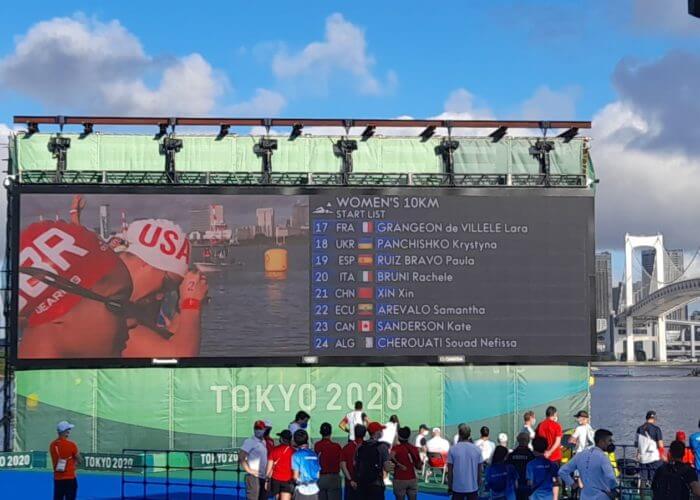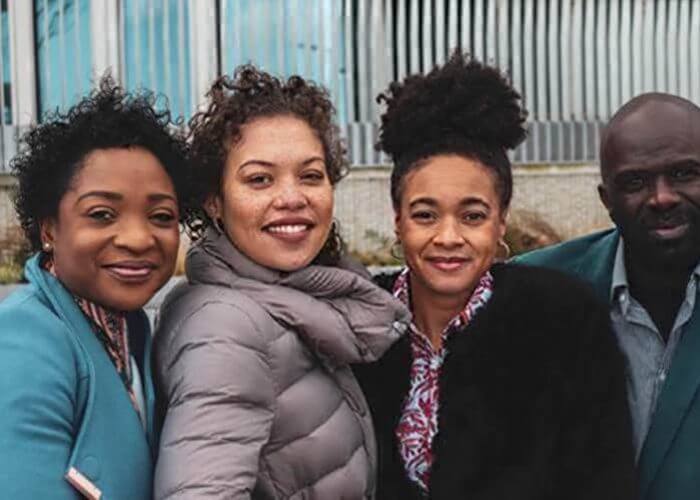Black Swimming Association Launches Research Into Barriers Facing Ethnically-Diverse Communities

The Black Swimming Association (BSA) is launching a ground-breaking research programme, which could dispel some of the myths surrounding ethnically-diverse communities and water safety.
According to Sport England, 95% of black adults and 80% of black children do not swim, while an estimated 532,000 children from ethnically-diverse communities have missed out on swimming lessons due to the pandemic.
Now, the BSA hopes this new research programme will provide a greater understanding of the behaviours and barriers facing people of African, Caribbean and Asian heritage preventing them from taking part in aquatics, as well as water safety knowledge around how to stay safe around water.
According to the Canal & River Trust, 20.5% of people in England and Wales who live within 1km of water are from ethnically-diverse backgrounds, which is above the national average of 14%.
Due to a disengagement in aquatics, and consequently little to no knowledge of water safety education, these groups are considered to be high risk when it comes to drowning.
BSA chair and co-founder Danielle Obe said:
“We’re confident that this pioneering research will improve our understanding of the issues and barriers that children and adults in African, Caribbean and Asian communities face in learning to swim and engaging in aquatics and water safety, and that they will go on to benefit from aquatic activity throughout their lives.
“For the first time we will gain real insight into whether these barriers are cultural, faith-based, community influenced or based on individual circumstances.
“We hope, through a combination of the research and a community engagement programme, to affect real change in the aquatic sector.”

Photo Courtesy: Liz Byrnes
Alice Dearing is a co-founder of the BSA and made history in Tokyo when she became Great Britain’s first black female Olympic swimmer, finishing 19th in the 10km marathon event.
“I’m really excited about this new project,” she said.
“It’s a huge step towards getting more people from ethnically-diverse backgrounds engaged in aquatics and all it has to offer.”
Professor Mike Tipton, MBE, lead researcher and academic partner at the University of Portsmouth will lead the water-based research, which is expected to analyse the physiological reasons that are widely believed prevent people of African, Caribbean and Asian heritage from being proficient swimmers, whilst teaching participants about floatability.
He said:
“By examining the physiological, anatomical and morphological characteristics of African, Caribbean and Asian volunteers in air and water, the proposed research will hopefully help to dispel the myth that these individuals are unable to stay afloat and therefore enjoy water-based activities.”
Professor Tipton’s previous research has been a cornerstone of the Royal National Lifeboat Institution’s (RNLI) FLOAT to Live safety campaign, which encourages anyone in trouble in the water to resist the urge to thrash around, relax and lean back, extending their arms and legs like a starfish to regain control of their breathing.
The research project, which will be woven into a large-scale community engagement programme, will also seek to create lasting relationships between disengaged communities and the aquatics sector.
The BSA will then work with its partners across the leisure, health and education sectors to co-create solutions and enable stronger representation at all levels of aquatics.
The RNLI is backing the BSA’s innovative new research programme with the two organisations forming a partnership to collaborate on water safety and drowning prevention work.

Black Swimming Association: Photo Courtesy: Speedo
RNLI Head of Water Safety, Gareth Morrison said:
“The RNLI’s vision is to save everyone, and an essential part of this is ensuring effective water safety messaging and education in the community.
“By joining forces with the Black Swimming Association the combined reach and influence of our organisations will far exceed anything either could do alone.
“We are extremely proud to be working with the BSA and doing all we can to reduce drowning in the African, Caribbean and Asian communities in the UK and Ireland.”
Advertising: Shop At Swim360



